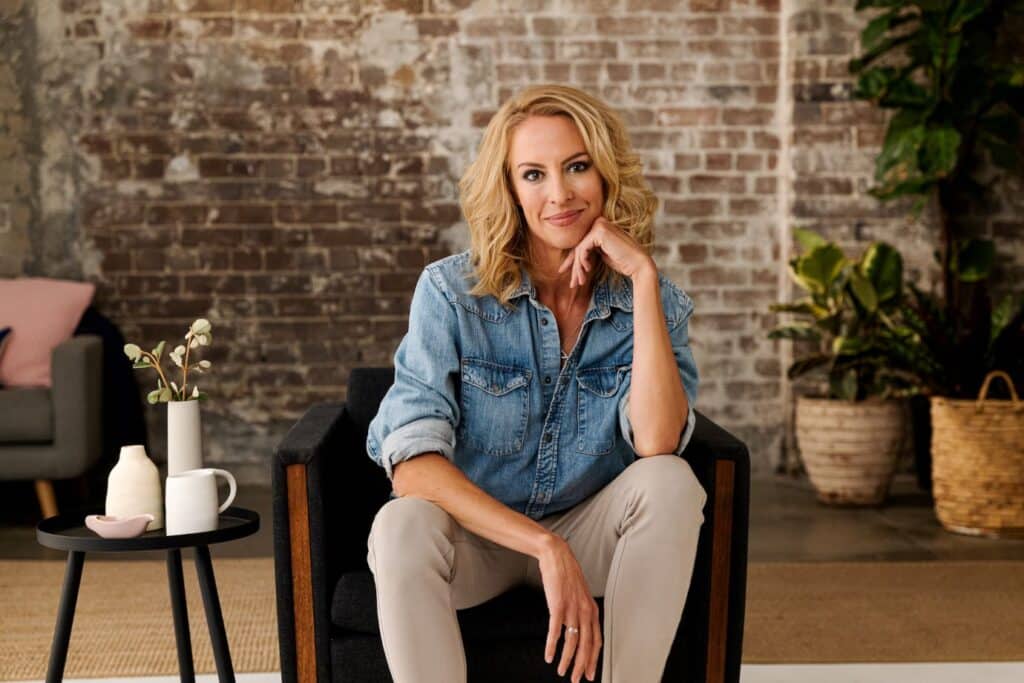It’s been a decade since Sarah Wilson published her book I Quit Sugar, alerting the public to the health implications of processed sugar and its links to chronic diseases.
Today, she’s launching a new campaign to sound the alarm about the health dangers of gas in our homes. Fittingly, the campaign, which has launched in partnership with the Climate Council, is called ‘I Quit Gas’.
The campaign aligns with the release of a national poll that shows that almost all Australians – 90 per cent – are aware of the health dangers of tobacco and asbestos, but only 32 per cent are aware that burning gas in the home for cooking or heating is a significant health hazard.
About 60 per cent were ambivalent about gas and viewed burning gas in the home as benign.
“With these kinds of issues we often sit up and pay attention when the health implications are pointed out to us,” Wilson told Women’s Agenda ahead of the campaign launch. “From there we often start to listen to the messages about the broader social or environmental impact, and even the role vested interests play.”
It’s estimated that burning gas in homes is responsible for up to 12 per cent of asthma in children in Australia. Indeed, a child living with gas cooking in their home faces a comparable risk of asthma to a child living in a house with someone smoking cigarettes.
“The evidence is clear and mounting that gas stoves and heaters leak toxic gases including nitrogen dioxide into our homes, which has been linked to asthma in children,” Wilson says.
Not only is there low public awareness about the health implications of gas in our homes, there’s also a lack of knowledge in the community about the role gas plays in accelerating climate change.
More than 40 per cent of Australians know gas is a fossil fuel but they think it is less harmful than coal and oil. Just 20 per cent of people think it is a major driver of climate change.
Alarmingly, one in five people think gas is a form of clean energy, and part of the solution when it comes to climate change.
“I’ve been watching the way that the fossil fuel industry has created a dialogue that’s really seductive, starting with this idea of so-called ‘natural gas’ which I was fooled by for years,” Wilson says. “I just assumed it must be a more natural option than other fossil fuels.”
“It was completely made up by the gas industry, as far back as the 1930s, when influencers were paid to spread this message. Now, a lot of us see it as a better, sexier option.”

Wilson says “the first step in all of this is to realise that the gas industry is meddling in this”, and we need to be asking questions like why has this happened without us being told?
“I’d also just encourage people to be aware that of course there’s going to be push back as there was with sugar and tobacco. We know how this works,” she said.
“But we don’t have to buy the messaging.”
The ‘I Quit Gas’ campaign is calling on state and territory governments to help Australians move away from gas, with interest free loans for switching to all-electric home appliances.
As a renter, Wilson is aware that those living in rentals have much less power than homeowners to make the switch to electric kitchen appliances, but says interest free loans can also incentivise landlords to swap out old gas appliances.
“A big part of this campaign is acknowledging that renters don’t have much control over whether their kitchen uses gas,” she says. “Those who are suffering the most from gas stoves are renters, because the majority of rentals contain gas and they often have the really old stoves.”
For homeowners, Wilson says no one is asking anyone to rip out their kitchen.
“Nobody is taking anyone’s gas stove. It’s about educating people that if they do a rebuild, then switch to electric.”
Another key consideration when it comes to gas is the current cost of living crisis that has seen power bills skyrocket. According to the Australian Consumer and Competition Commission, the cost of gas is a major driver of Australia’s high electricity prices.
But according to a poll by the Climate Council, just one in 10 Australians are aware of this.
Head of Advocacy at the Climate Council, Dr Jennifer Rayner said policies to help households move from gas to electric appliances will “unlock bill savings”, while transitioning the national electricity grid from gas to renewable energy will reduce wholesale energy prices.


